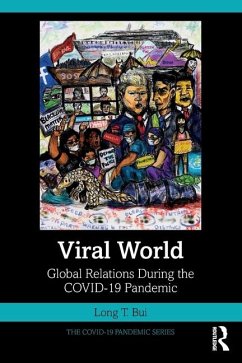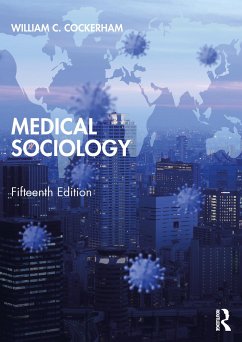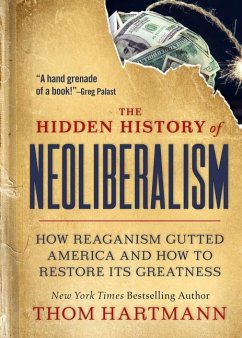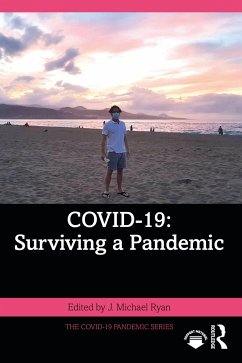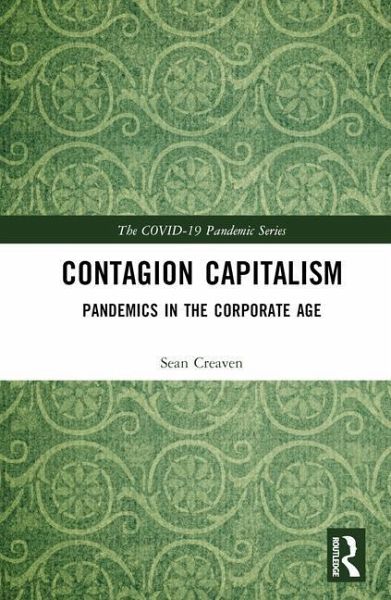
Contagion Capitalism
Pandemics in the Corporate Age
Versandkostenfrei!
Versandfertig in 6-10 Tagen
154,99 €
inkl. MwSt.
Weitere Ausgaben:

PAYBACK Punkte
77 °P sammeln!
Contagion Capitalism situates the COVID-19 pandemic within the systems of global political economy and their attendant cultural modes and theorizes that these systems act as facilitators and drivers of global pandemic risk.Contagion Capitalism therefore critiques the institutionalized corporate-capitalist control of the economy, the state, and science, and the grave consequences this has on global public health policy, the ecological crisis of sustainability, and zoonotic pandemic events such as COVID-19. In doing so, this book addresses the failings of what may be termed as "state science" or...
Contagion Capitalism situates the COVID-19 pandemic within the systems of global political economy and their attendant cultural modes and theorizes that these systems act as facilitators and drivers of global pandemic risk.
Contagion Capitalism therefore critiques the institutionalized corporate-capitalist control of the economy, the state, and science, and the grave consequences this has on global public health policy, the ecological crisis of sustainability, and zoonotic pandemic events such as COVID-19. In doing so, this book addresses the failings of what may be termed as "state science" or "establishment science" in managing the pandemic, as personified especially by those elements of the scientific elite placed in the service of the neoliberal state. This book also explores the limitations of corporate pharmacological technoscience in safeguarding public health, arguing that "Big Pharma" offers only partial remedies for problems of human illness and well-being, poses its own dangers to public health, and obfuscates the social bases of public ill-health and of pandemic risk. Contagion Capitalism further argues that COVID-19 will not be the last or even the most dangerous such epidemiological event. This is because the social production and global dissemination of zoonotic diseases is integral to contemporary capitalism, by virtue of its instrumental mode of science, its central dynamic of production for the sake of accumulation, and the consumer mode this sustains as its own condition of existence. These are the drivers of what may be termed as zoonotic accelerationism.
Contagion Capitalism will appeal to scholars in the humanities and social sciences with interests in neoliberal ideology and global political economy, and their impact upon social, political and cultural life.
Contagion Capitalism therefore critiques the institutionalized corporate-capitalist control of the economy, the state, and science, and the grave consequences this has on global public health policy, the ecological crisis of sustainability, and zoonotic pandemic events such as COVID-19. In doing so, this book addresses the failings of what may be termed as "state science" or "establishment science" in managing the pandemic, as personified especially by those elements of the scientific elite placed in the service of the neoliberal state. This book also explores the limitations of corporate pharmacological technoscience in safeguarding public health, arguing that "Big Pharma" offers only partial remedies for problems of human illness and well-being, poses its own dangers to public health, and obfuscates the social bases of public ill-health and of pandemic risk. Contagion Capitalism further argues that COVID-19 will not be the last or even the most dangerous such epidemiological event. This is because the social production and global dissemination of zoonotic diseases is integral to contemporary capitalism, by virtue of its instrumental mode of science, its central dynamic of production for the sake of accumulation, and the consumer mode this sustains as its own condition of existence. These are the drivers of what may be termed as zoonotic accelerationism.
Contagion Capitalism will appeal to scholars in the humanities and social sciences with interests in neoliberal ideology and global political economy, and their impact upon social, political and cultural life.






